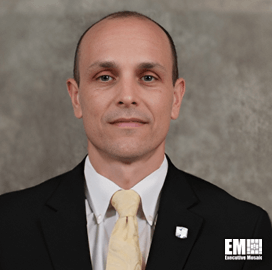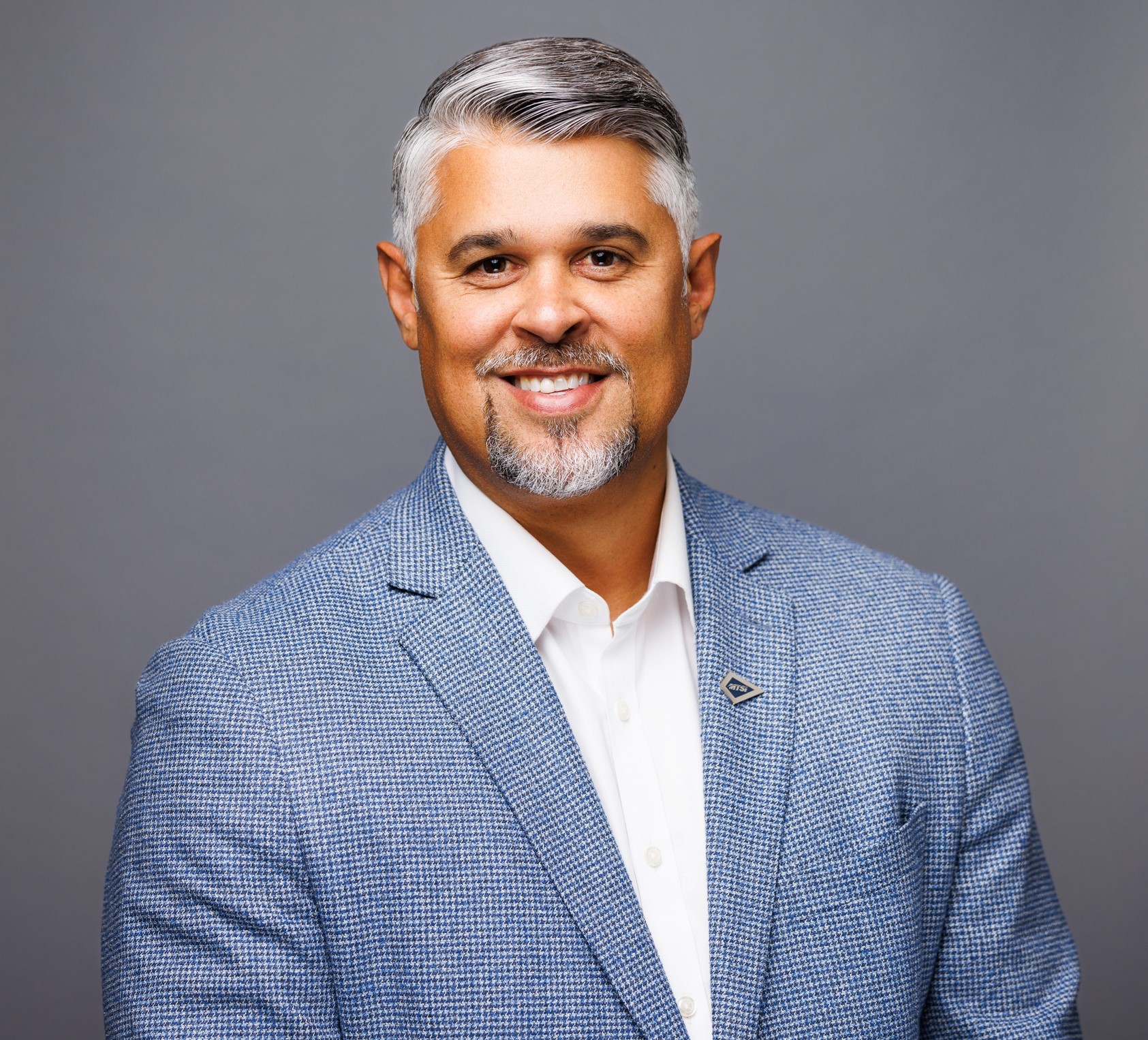
Corey Hastings,
CFO, SVP & Treasurer,
HJF
Executive Spotlight: Corey Hastings, CFO, SVP & Treasurer of HJF
Corey Hastings serves as chief financial officer, senior vice president and treasurer of The Henry M. Jackson Foundation for the Advancement of Military Medicine, Inc., where he oversees a wide array of financial operations for over $500 million in government contracts and grants centering military health initiatives.
In a recent interview with the Potomac Officers Club, Hastings detailed his career background, shared his leadership strengths and discussed the challenges businesses face when innovating.
Read the full interview below:
What can you tell us about your background and how you’ve been able to adapt to the ever-changing challenges of the federal landscape over the course of your career?
Currently, I am the chief financial officer, senior vice president and treasurer of The Henry M. Jackson Foundation for the Advancement of Military Medicine, Inc. In 1983, the U.S. Congress enacted legislation to authorize the establishment of HJF to advance military medicine for the benefit of both civilian and military populations. HJF focuses on advancing military medical research and development to enhance force health, readiness, resilience and rehabilitation. HJF currently has over 2,800 employees and collaborates on more than 600 federal grants and contracts with many government, industry, nonprofit and academic partners. These collaborations involve research projects ranging from early discovery and preclinical research to observational cohort studies, Phase I-III interventional clinical trials and studies to evaluate long-term health outcomes. Our research spans a wide spectrum of areas including cancer, chemical, biological and radiological defense, rehabilitative medicine, combat casualty care, force health protection, human performance, infectious disease, precision medicine, TBI, PTSD, mental health and more.
One thing that has helped me to adapt to the changing federal landscape as HJF’s CFO is my significant prior program management experience. I was the executive manager of the Center for Neuroscience and Regenerative Medicine, a traumatic brain injury research program at the Uniformed Services University of the Health Sciences – a major HJF partner. I also served as the national director for the Senior Community Service Employment Program of the Department of Labor on behalf of the AARP Foundation. In these roles I interacted routinely with scientists and site leads to understand how they accomplished their missions in compliance with evolving federal requirements. Finance is inseparable from operations, and understanding the operational function of technically and geographically diverse programs is critical to making strategically effective financial and financial systems decisions.
What do you believe are your core strengths as a leader and what lessons taught you the most about driving success?
At HJF, our mission is to advance military medicine. My first core strength as a leader is that I seek continuous learning about my organization, its key personnel and our mission. I want to understand what works and what doesn’t in military medical research and in nonprofit financial management, so I can implement what works. Bad decisions often happen because leaders lack context or miss something critical in the environment. Reducing the likelihood of this happening requires continuous learning and improvement. The biggest misses I have had in my career were usually because “you don’t know what you don’t know,” so I strive to minimize the risk of that happening wherever possible. I want to be a much better CFO one month and one year from now than I am today, and I would like to support HJF and our leadership in being better partners to the government next month and next year than we are today.
I emphasize a strengths-based approach to execution in how I interact with people and organizations. For example, I can confidently say that HJF is the single best non-federal institution at understanding and operating effectively to overcome barriers to advancing military medicine. We are acquainted with the key actors, both federal and non-federal, and we have exceptional scientific expertise partnering with many key Department of Defense organizations, not just on individual projects. We understand institutionally both specific and general regulations that govern the framework of this industry and we often help the government structure activities in ways that obtain enduring results. We have very talented people throughout the organization. I seek to meet every one of the approximately 100 individuals in the finance group I lead and look for their unrecognized talents. Invariably, a project will arise where those talents can take us to the next level of excellence. While I do value self-awareness, especially in terms of weaknesses and limitations, I choose to support people and organizations by expanding the applicability of their strengths while mitigating – not constantly emphasizing – their weaknesses. I do this because I have seen talented people from all levels of organizations succeed beyond expectations when given the opportunity. I take every opportunity I can to listen to the stories of nurses, doctors and medics of all types who made tremendous sacrifices to care for wounded warriors in the field. Because they work hard in challenging environments, it inspires me to work hard in the challenging environments I face, and hopefully inspire others to do the same.
With emerging technology influencing the federal government and industry more by the day, what are some of the challenges on the business side of innovation that aren’t always discussed as often as they should be?
Over much of the 20th century, the United States was unrivaled militarily and economically. Other nations have advanced economically, something which I am very grateful for because it has benefited people around the globe and helped them meet their basic needs. Other nations have also advanced militarily. Because the U.S. may no longer maintain the certainty of air or communications superiority in all situations, military medical professionals have to provide prolonged care to service members wounded on the battlefield without the ability to evacuate them in a timely way. Technology may pose other challenges in an environment of global conflict. To fight and win wars our nation needs healthy warfighters. Prior to adopting new business systems, we must consider how the innovations will impact the short- and long-term health and wellbeing of service members. This challenge is relevant from the micro-organizational level all the way through to the highest levels of defense strategy.

Category: Member News




